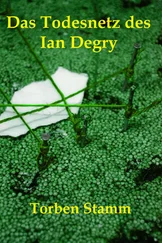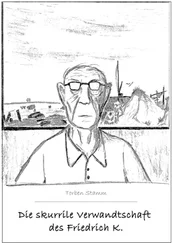After he finished school, he helped his father for another year, while Kurt was at agricultural college. From the outset, it was clear that his brother was going to take over the farm. His parents shrugged their shoulders when Alfons told them he had found a place with a vegetable grower by Lake Constance.
The farm was on a gently sloping northeast incline. Alfons loved the soft hills and the long views. While working, he could see the enormous body of water below him that seemed to look different in different weather. When it was clear, he could see right across to Langenargen on the German side, but what he liked best were days when the lake was hazed over, and seemed perfectly endless. That was how Alfons liked to think of the sea, an infinite expanse, behind which another world began, and a different sort of life. From day one, he felt more at home in this landscape than he ever had at home.
During his time as a trainee he lived on the top floor of the administration center, a plain and functional building that had a couple of bare rooms. He shared the bathroom and shower with a couple of Croats with whom he got on pretty well, but whom he never saw outside of working hours. He made no friends at agricultural college. He was always the outsider in the class. Most of his classmates were local, had grown up on big farms, had cars or motorbikes, and dressed like young townies. They made fun of Alfons’s clothes and the way he spoke, until he said no more than he had to. The teachers liked him, he was a good pupil, and on the practical side he was also one of the best.
WHEN HIS APPRENTICESHIP was over, Alfons stayed on for a while. He was still living in the little upstairs room over the offices, even though he could have afforded something better. But he didn’t need an apartment, he was saving to fulfill his own dream, a farm of his own, where he could put his ideas into effect.
Perhaps he acquired the farm too soon. He was only twenty-three when he responded to the advertisement. This farm was also on the ridge, but on the side facing away from the lake, on the edge of a small village. There was a small patch of woods that went with it, and twelve hectares of arable land, just enough for him on his own. The property belonged to a rich farmer from the Canton of Zurich, who had bought it for his son, who chose to follow a different calling, and so the farm was on the market. Alfons asked himself why it was that he, out of the twenty interested parties, had got the lease. Maybe the farmer saw a son in him, the young man with dreams, working to make his fortune. Alfons’s father helped with the down payment. They signed the lease in the pub and wet it with a glass of wine. Now all you need is a wife to keep the business together, said the man from Zurich. Alfons nodded vaguely and mumbled something.
His parents were always on at him about it as well. Have you got a girlfriend yet? What are the girls like in Thurgau? When can we expect to become grandparents? What do you do all the time? asked his brother. You can’t always be sitting around at home. That won’t get you anywhere. But Alfons wasn’t thinking in terms of weeks or months or years. He thought in days, and every day he said to himself, Not today, I’m tired, I need to make the payments, prepare the sower, check up on the bees. In that way three years passed, imperceptibly, without him taking any steps to find a wife.
Kurt had married a girl he went to school with. Verena had been in a steady relationship for years, and it was only a matter of time until she tied the knot. Only Alfons was still single. He was a member of the rifle club, but that didn’t take women. In the gymnastics association there was too much drinking and not enough gymnastics for his liking, and he didn’t want to join the choir, though he enjoyed singing. Once he had gone to a meeting of the rural young people, but all the others had known each other forever, and he felt excluded. Some evenings he went to the local bar, he liked the waitress there, but he didn’t know how to tell her, not under the eyes of the entire village. And with her looks, becoming a farmer’s wife was probably the last thing on her mind. He spent most of his evenings at home, doing sums. He kept precise accounts on each crop he grew, calculated the returns, compared them to those of last year and with the averages of the co-op. Every morning and every night he took note of the temperature, the air pressure, and the humidity. He made graphs and observed the changes in the weather. He also kept track of his expenditures on heating oil, water, and electricity. Whatever could be expressed in figures, he wrote it down.
At noon the rain stopped, and the gray murk turned into a layer of small clouds. Alfons picked up the lettuce seedlings in the barn and tossed them on the compost. It felt like throwing away money, but he had no choice, it was pointless to produce more than the market demanded. In the news they said the weather was on the mend. Still, by the time his fields had dried out sufficiently for him to go out on the tractor, another two or three days would be gone.
While he rinsed the plates, he heard engine noise from outside. He wiped his hands and looked out the window. A big truck stood on his neighbor’s meadow, the other side of the road, and a couple of young men were rolling up the canvas cover. Then they separated, as though each was searching for something.
Alfons stepped outside and took a few steps closer, then he recognized one of the men, it was Klemens, the carpenter’s son, and it dawned on him that these must be the guys from Open Air. The idea had struck in winter, and for weeks the whole village had talked about nothing else. The young people wanted to organize an Open Air Festival for local bands, with a bar and activities for children. In January, Klemens had come by. He had introduced himself as president of the Organizing Committee, told Alfons that the festival would take place in the meadow below his house, and asked if they could take power and water from him. Of course they would install meters, and he would be properly reimbursed. Alfons felt he had little choice but to agree. After that, he had heard nothing more from the organizers, and forgotten all about the whole thing.
He was surprised when his neighbor had part of the pasture mown a couple of days ago, even though the grass wasn’t that long. That was where the truck was parked now, and the men were starting to unload timber. Alfons walked down and asked them when the festival was happening. In ten days, said Klemens, the last weekend of June. That Sunday is Seven Sleepers. Klemens asked what that was, and Alfons explained. He had read the story in a farmers’ almanac. On Seven Sleepers’ Day, according to an old legend, seven Christians were found who in Roman times had been walled into a cave and had slept through two hundred years. From a farmers’ rule of thumb, that day predicted the weather for the next seven weeks. Then we can only hope it will have picked up by then, said Klemens, and returned to the planks.
All afternoon Alfons chopped weeds in his celery field. By the time he was finished and came home, at six, the truck was gone, but there were piles of boards and beams in the grass. The young men were busy putting up a large white tent at the bottom of the meadow. They worked until it got dark, then they lit a fire and drank beer. They had a CD player with them, and through his closed window Alfons could hear the distant music and the men laughing and shouting. It was midnight before there was quiet.
The next day, a workman came from the utilities company and laid improvised water and power mains from Alfons’s cellar across the road and down into the meadow. Alfons knew the man from the rifle club. He offered him a cup of coffee, and they talked about the festival a bit. The workman said he thought it was good for the young people to set something up on their own, instead of just hanging around and doing drugs. Even though Alfons was younger than some of the committee, he noticed the workman talked to him as though he was an old man.
Читать дальше
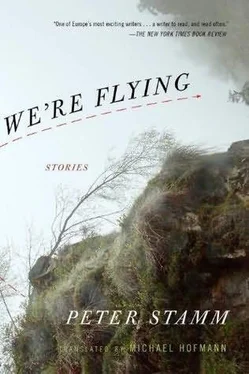

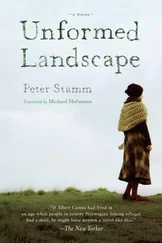



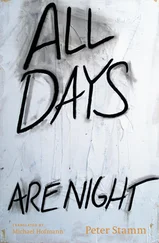
![Brian Jacques - [Flying Dutchman 01] - Castaways of the Flying Dutchman](/books/128851/brian-jacques-flying-dutchman-01-thumb.webp)
